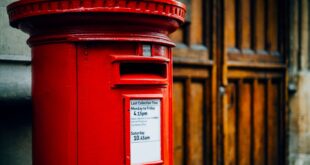This week, the British public has been asked to channel its “Blitz spirit”, while many older people have said that if they can survive the war, they can survive this.
In Tuesday’s press conference, Prime Minister Boris Johnson said the steps taken to fight the deadly disease were “unprecedented since WWII.”
But how different are the current restrictions around the coronavirus outbreak compared to the Second World War?
Rationing:
Coronavirus:
There is no government mandated food rationing scheme, but supermarkets have been struggling to keep up with demand, and some have responded with limiting how much people can buy.
Aldi has restricted customers to buying a maximum of four of each item, while at Tesco, shoppers are limited to buying no more than five of certain goods, including anti-bacterial gels, wipes and sprays, dry pasta, UHT milk and some tinned vegetables.
In a joint letter, UK retailers said online and click-and-collect services are at “full capacity” and staff and suppliers are “working day and night to keep the nation fed”.
WWII:
Rationing was introduced less than a year into the Second World War, with bacon, butter and sugar limited. By 1942, the restrictions were so tight that, on average an adult could buy one egg, three pints of milk, two ounces of cheese and just two ounces of tea.
And yes, there was a run on lavatory paper. Some families had only one roll a week, and resorted to using newspapers instead.
Supermarkets have been struggling to keep up with demand
Credit: FACUNDO ARRIZABALAGA/EPA-EFE/Shutterstock
Sports
Coronavirus:
Football across Europe and the world has been suspended, with the European championships postponed. England men’s cricket tour to Sri Lanka has been cancelled. The rugby six nations championship has been postponed.The Tokyo 2020 olympics is hanging in the balance, as is the Formula 1 season and Wimbledon. Horse racing has been cancelled across Britain. The US Masters golf championship at Augusta has been postponed. Viral videos of marble racing are now very popular.
WWII:
In 1942, the mid-point of WWII, the football world cup was not held, there was no first class cricket, the grand national was cancelled and so was the rugby five nations championship. Wimbledon was cancelled and there were no motor racing championships contested. The US Masters golf championship did take place at Augusta, and was won by Byron Nelson.
Liverpool may not be crowned premier league champions this seasonn
Credit: Action Images via Reuters/Carl Recine
Schools
Coronavirus:
As it stands, schools have been told to stay open across the UK, while they have been shut in other parts of Europe. Schools are struggling with staff and children at home in isolation, and they are expected to close in the coming weeks.
WWII:
Schools across England’s towns and cities were shut during WWII, with children relocated to the countryside, where they were less likely to be at risk of bombing raids.
Some 800,000 evacuee children lived with families in the countryside and attended local schools or makeshift educational venues including church halls.
Deliveries
Coronavirus:
Royal Mail has so far not been adversely affected by coronavirus, and deliveries are continuing as usual. Amazon workers have been told to work overtime as there has been a huge spike in demand, due to more people being at home and avoiding social contact. Food deliveries have also been affected, with Deliveroo now offering ‘contactless delivery’ with meals left on doorsteps to reduce contact.
WWII:
The Royal Mail continued to function during WWII, playing a crucial role in boosting morale by delivering letters from soldiers on the front line back to their loved ones.
In June 1944, Supreme Commander of the Allied Expeditionary Force (and later President of the United States) General Dwight D Eisenhower wrote to Captain Harry Crookshank, Postmaster General, thanking the staff of Royal Mail for their help in laying communications down in the run up to D-Day.
Commemorative stamps were made to recognise the efforts of allied soldiers in WWII
Credit: Royal Mail / PA
Travel
Coronavirus:
The government has advised Britons against non-essential overseas travel for 30 days. Foreign Secretary Dominic Raab said the changes to the FCO travel advice were in response to UK travellers abroad facing widespread international border restrictions and lockdowns in various countries.
Mr Raab also warned that those who continue to travel, going against the FCO’s advice, should be aware of the risk that they may not be able to return home.
WWII:
Foreign leisure travel was limited during the Second World War. The vast majority of people who could, stayed in England while war was raging across continental Europe. There were passenger ships that sailed to and from America, but commercial air travel was not established.
Gatherings, including the pub
Coronavirus:
We should all avoid “pubs, clubs, theatres and other such social venues,” according to government advice.
Mr Johnson also said that the Government would no longer be supporting mass gatherings with emergency workers so that they can be employed on the front line against the deadly disease.
Mass gatherings are something “we are now moving emphatically away from”, he said, stopping short of banning them outright, as other countries have done.
People were advised not to go to the pub and celebrate St Patrick’s day
Credit: Paul Faith / AFP
WWII:
During WWII, pubs did remain open and were seen as important hubs for people to bond during difficult times.
With men being sent off to war, rules were relaxed around female barmaids serving pints and in London’s West End, some late licenses were granted allowing places to stay open until 2am. Others used their cellars as bomb shelters.
However, the price of beer did rise during the 1940s, and looting was reported at pubs across the country.
Source link



